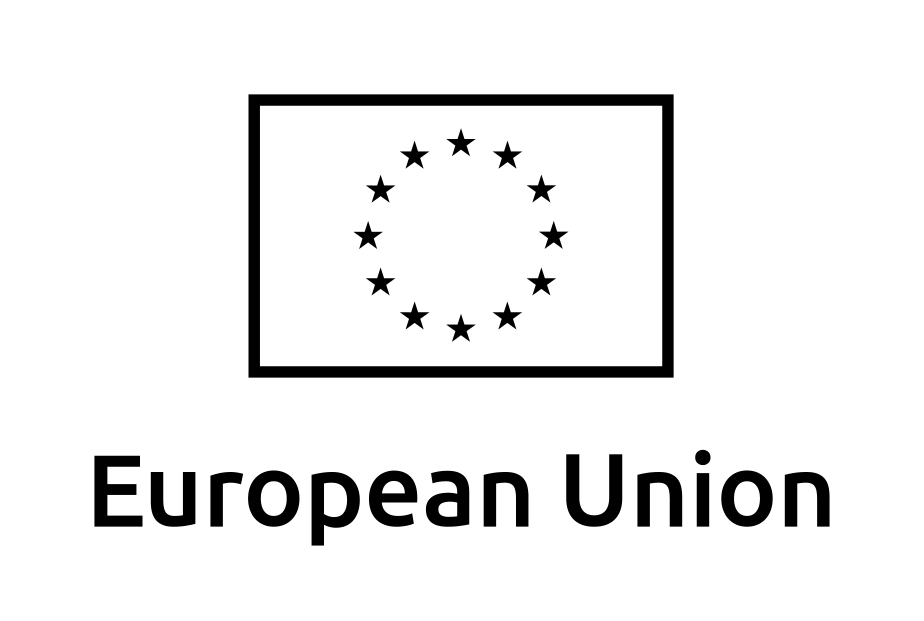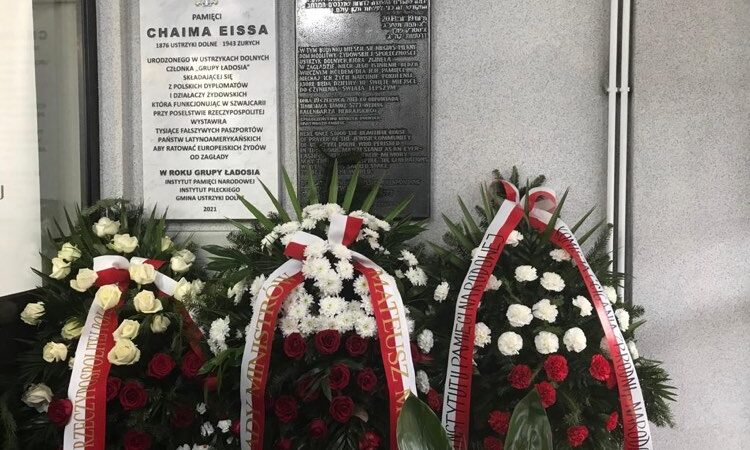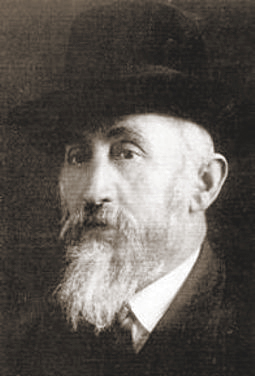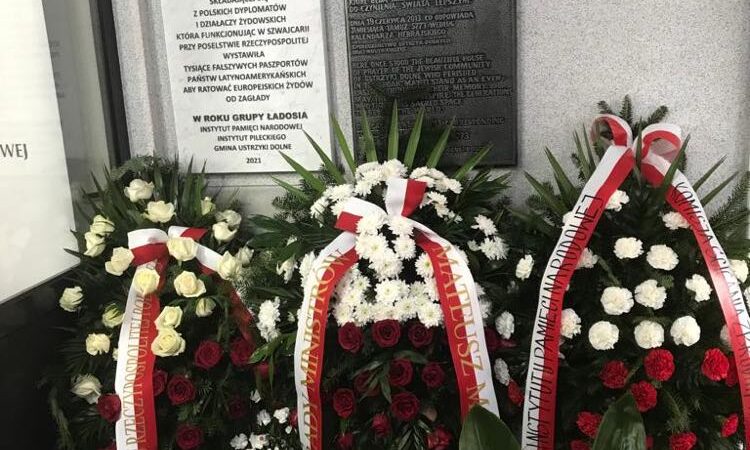The Unveiling of the Memorial Plaque for Chaim Eiss – a Member of the Ładoś Group
On November 22 at 11:00 in the building of Disctrict and the Municipal Public Library of prof. Eugeniusz Wanieek at 5 Rynek St. in Ustrzyki Dolne, there was a ceremony of unveiling a memorial plaque for Chaim Eiss – a member of the Ładoś-group. The Warsaw Ghetto Museum was represented by its director Albert Stankowski.
The President of the Institute of National Remembrance, Dr. Karol Nawrocki, and the Deputy Director of the Pilecki Institute, Anna Gutkowska, unveiled a commemorative plaque for Chaim Yisroel Eiss, a member of the Ładoś Group, which organized and produced illegal Latin American passports during the World War II. The documents issued to Jews significantly increased their chances of survival in the territories occupied by the German Reich. By a decision of the Sejm, the year 2021 was declared the Year of the Ładoś Group.
The ceremony, organized by the Institute of National Remembrance, the Pilecki Institute and the Municipality of Ustrzyki Dolne, will begin on November 22, 2021 at 11:00 a.m. in the building of the Dictrict and Municipal Library of prof. Eugeniusz Wanieek at 5 Rynek St. in Ustrzyki Dolne. The event will be broadcast on the channel IPNtv.
A commemorative plaque, financed by the IPN Office for the Remembrance of Struggle and Martyrdom, was placed in the District and Municipal Library in Ustrzyki Dolne, which was built on the foundations of the synagogue. The synagogue, built in the first half of the 19th century, was completely destroyed by the Germans during the World War II. After the end of the war, the synagogue building was used as a grain warehouse. After a thorough reconstruction, a change in the interior and exterior appearance, it now houses the municipal public library.
Chaim Yisroel Eiss (1876–1943) was born in Ustrzyki to an Orthodox Jewish family. He had ten siblings, none of whom reached adulthood. The name Chaim, meaning “life,” is symbolic – it was given to Eiss as the only child to survive. In 1900 he came to Switzerland to begin his studies. During the First World War, he helped refugees. He was active in the Jewish community – he was one of the founders and leaders of the international political organization Agudat Israel. He used the contacts he had acquired during the World War II, to rescue Jews who had been sentenced to extermination by the Germans. Having established cooperation with diplomats of the Polish legation in Bern, he created a network for smuggling passports to the ghettos in occupied Poland. He co-financed the activities of the Ładoś Group, obtained letters with the names of Jews for whom documents and photographs were prepared for the issuance of passports.
The Institute of National Remembrance and the Pilecki Institute combine their efforts in scientific research and dissemination of knowledge about the activities of the Ładoś Group. In 2018, the Institute of National Remembrance produced the documentary film “Passports of Paraguay” directed by Robert Kaczmarek, which deals with the activities of the group of MP Aleksander Ładoś to save the Jews. The sequel to “Passports of Paraguay” is the documentary “Polmission. The Secrets of the Passports”, co-produced by the Institute of National Memory. It shows the plot of one of the largest and most mysterious actions to rescue Jews during the World War II. The film, directed by Jacek Papis, tells about the fate of the survivors thanks to the activities of Polish diplomacy and the Polish secret service in cooperation with international organizations. In March 2021, a plaque commemorating the Ładoś Group (Bern Group) was unveiled in Będzin, financed by the Branch for the Remembrance of Struggle and Martyrdom of the Institute of National Remembrance in Katowice.
In 2019, the Pilecki Institute, in collaboration with Jakub Kumoch and Jędrzej Uszyński, published “the Ladoś List” – a scientific study of a personal list of over 3,000 people of Jewish nationality to whom the Ładoś Group issued “life passports.” The first edition of the Ładoś-List helped to establish contact with families who previously held unlisted passports and to reach additional sources, which made it possible to update the data in the English edition of the book, published in 2020 under the auspices of the World Jewish Congress.
Representatives of both institutes are involved in the activities of the International Committee of the Ładoś Group, which brings together the families of the members of the Ładoś Group, representatives of the survivors thanks to the “Passports of Life” and researchers from many countries. [source: Institute of National Remembrance.]




